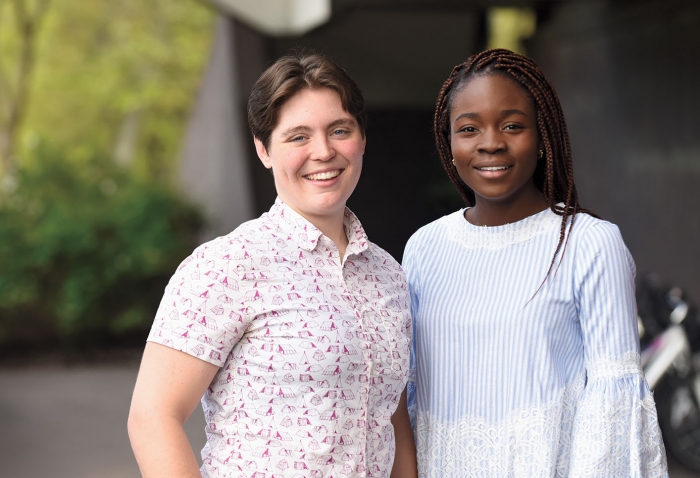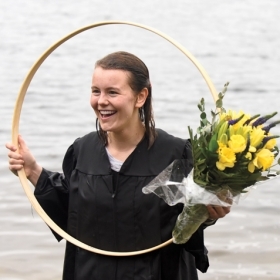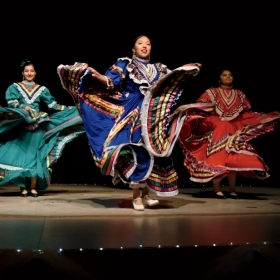Photo by Richard Howard
Each May, students present their research at the Ruhlman Conference. This year, we caught up with two seniors who presented thesis work to ask about the process.
Jocelyne Reahl ’19 (left, above) presented “Linking Sedimentary Textures to Neoproterozoic Climate Dynamics,” based on her research about how the characteristics of ancient sediments reveal climate history, conducted at MIT’s Bergmann Lab in the earth, atmospheric, and planetary sciences group.
How did your work at MIT come about?
I had a tumultuous time choosing my major. I was initially astrophysics. I realized I wanted to know physics to apply it to problems in planetary science, but not necessarily push the boundaries of physics. I wanted to push the boundaries of geology and space. I switched to geology late. [Associate Professor of Astronomy] Wes Watters put me in contact with an alum, Marjorie Cantine ’13, at the Bergmann Lab. I ended up being taken on as an undergraduate research student. They were interested in giving me a thesis project, and that’s how I ended up thesising at MIT. I’ve had a great time, even though commuting is kind of a nightmare.
How was the process?
I know a lot of people do theses in a two-stage process, first getting all your data, all your research, doing a lot of your analysis. And then the spring is writing time. I was doing a mix throughout. I was simultaneously doing literature review, but also preparing [rock] samples, because I had to make thin sections. As the thin-section saw was grinding, I was looking up sources, accruing my library, and doing some writing.
What’s next for you?
This summer, I’m going on the Juneau Icefield Research Program (JIRP) in Alaska. The first two weeks you get safety trained in ski mountaineering, and then the next six weeks is a traverse over the Juneau ice field on skis. I’m not slated to go to grad school right now. I wanted to take a little bit of time off to nail down exactly what I want. Is planetary science really the thing I want? Is fieldwork really the thing?
Demilade Adeboye ’19 spoke on “An Exploration of Emotional Expression Through Harmony,” and conducted her Quartet for Strings, composed for the thesis.
Why did you decide to do a thesis?
I knew I wanted to compose. The music department has three programs for theses. You can do an academic thesis, a performance thesis with an honors recital, or a thesis in composition. So I decided to jump on that.
Who are your musical influences?
I love Brahms, the way that he writes his harmonies and melodies. He writes for instruments in the same way that he would for voice. It’s very poetic, and the phrasing is very beautiful and melodic. I am inspired by him in everything that I do musically. And also, a couple of more contemporary composers—Messiaen, who is relatively contemporary compared to Brahms, and Augusta Read Thomas.
How was the process?
The initial stage was very much me sitting at the piano with this giant score notebook that I just scribble in. That was most of fall semester. And then in the spring I was on the computer putting down the scores. I use Sibelius, a music-writing software. The hardest part was the compositional part. I wanted to be intentional in what I was putting down, without having to tell the players how to play it. I wanted it to be explicitly clear on the page when they’re playing what sound I’m trying to communicate.
How did the thesis affect your senior year?
I think the hardest part of this semester was trying to separate myself from my music, and really take a break from it. I was hearing my music constantly in my head. And even though I submitted the pieces and have performed them, I still feel there’s so much I could do on them. It’s very much true that a composer’s work is never done.








We ask that those who engage in Wellesley magazine's online community act with honesty, integrity, and respect. (Remember the honor code, alums?) We reserve the right to remove comments by impersonators or comments that are not civil and relevant to the subject at hand. By posting here, you are permitting Wellesley magazine to edit and republish your comment in all media. Please remember that all posts are public.